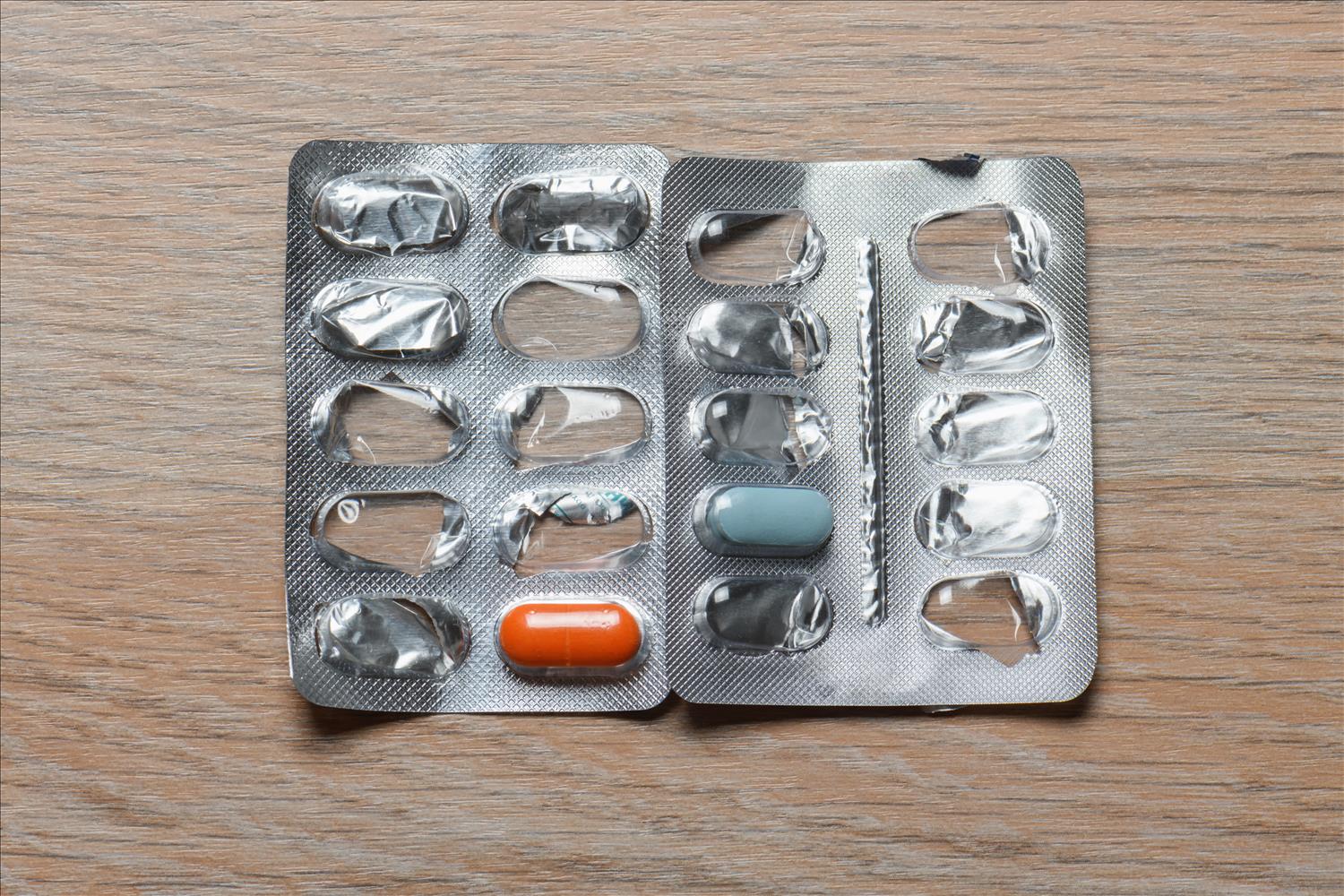
Here's Why So Many Medications Are Out Of Stock — And What To Do If It Affects You
Millions of people worldwide who use certain common medicines may be finding it more difficult to get their normal prescriptions dispensed. This comes after pharmacies across the UK, the US and Europe have all reported shortages of many different drugs , including those often prescribed for menopause, dementia, depression and pain.
There are many reasons why disruptions in the pharmaceutical supply chain occur, including manufacturing issues, supplier and price changes, increased demand, stockpiling and panic buying. For example, both reduced supply and growing demand may partly explain why hormone replacement therapy (HRT) products have faced recent shortages.
There is no one clear root cause of the current global medicines shortages, and each country will face different challenges with supplies. But factors such as the pandemic, Brexit, reduced supplies from over-used supply routes (such as India) and the Ukraine conflict, all have widespread effects on the availability of medicines.
But disruptions in the supply chain can be more than just a minor annoyance for patients trying to get their prescriptions. It could potentially lead to delays in patient treatments and even fatalities .
People unable to get their usual prescription may try swapping medications, accessing products online, or even buying them over-the-counter. Not only can this be more expensive , it may also put patients at risk of adverse effects.
What's being doneWhen supplies are restricted, pharmacy staff will try to source stock from suppliers or other pharmacies. Where an alternative product already exists, pharmacy staff will contact GPs to ask for prescriptions to be changed to give this to patients. But patients should be made aware if their medication is switched to avoid confusion and any negative side effects.
When major product shortages are reported, serious shortages protocols can be enacted . These help pharmacies to manage medicine shortages without needing to refer patients back to prescribers. For example, if these protocols are enacted pharmacists may supply alternative products (if a patient agrees to this), or adjust prescription quantities – such as giving patients only a one-month supply at a time.
Your pharmacist may be able to help you understand any medication changes. PeopleImages.com - Yuri A/ Shutterstock
Manufacturers are also legally required to report supply disruptions to the Department of Health and Social Care. This information is fed into the Medicines Supply Tool that advises healthcare professionals on supply issues, actions to take, alternatives to use and expected resolution dates. Local pharmacy staff and GPs will also report any product shortages to government agencies and with patients.
Patient informationWhile some might argue that patients shouldn't have to get involved in accessing their own medications, it can be very helpful when there are shortages. Here are some things you can do if your medication is becoming more difficult to source.
If you take a particular medication on a repeat basis, you can request your prescriptions earlier, before your current supplies run out. There are also online resources you can check, which will tell you whether your medication is being affected by shortages , and what you can do about it.
If your local pharmacy doesn't have your medication, you can try other pharmacies to find the medication before the prescription has to be changed to an alternative product.
You can also work with your GP or pharmacist to better understand what's happening and what you can do. If you can't get an appointment with your GP or speak to your local pharmacist team in person, there are apps which allow direct messaging . This can help dispel any confusion and allow you to discuss concerns you may have.
It's worth noting that product changes in community pharmacy are only allowed when serious shortage protocols are in place. At the moment, serious shortage protocols are only in place for 16 UK medications – mainly those used as hormone replacement therapy. These protocols are only enacted if a serious shortage of a particular medication has been declared.
It's unlikely that medicines shortages are going to be resolved anytime soon. As such, it's important you speak with your pharmacist or GP about any concerns you have, how shortages affect your medication supply, and what course of action you may need to take. It's important you don't use an alternative product without speaking to your pharmacist, nurse or doctor to avoid adverse side effects.

Legal Disclaimer:
MENAFN provides the
information “as is” without warranty of any kind. We do not accept
any responsibility or liability for the accuracy, content, images,
videos, licenses, completeness, legality, or reliability of the information
contained in this article. If you have any complaints or copyright
issues related to this article, kindly contact the provider above.


















Comments
No comment